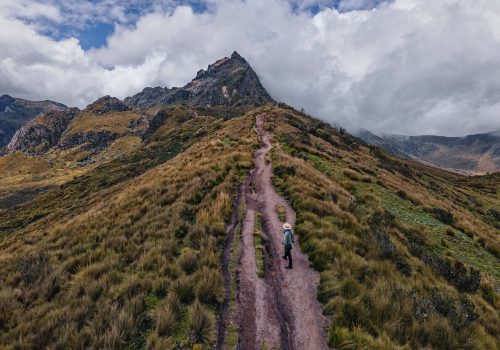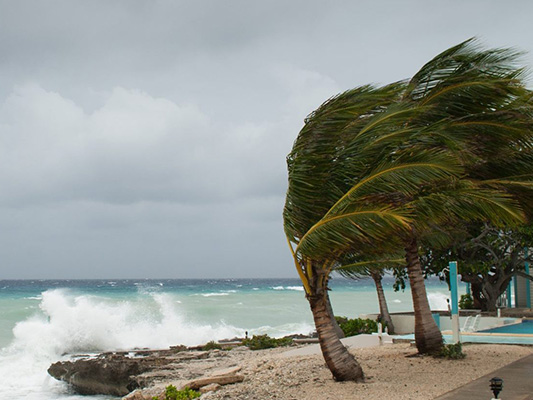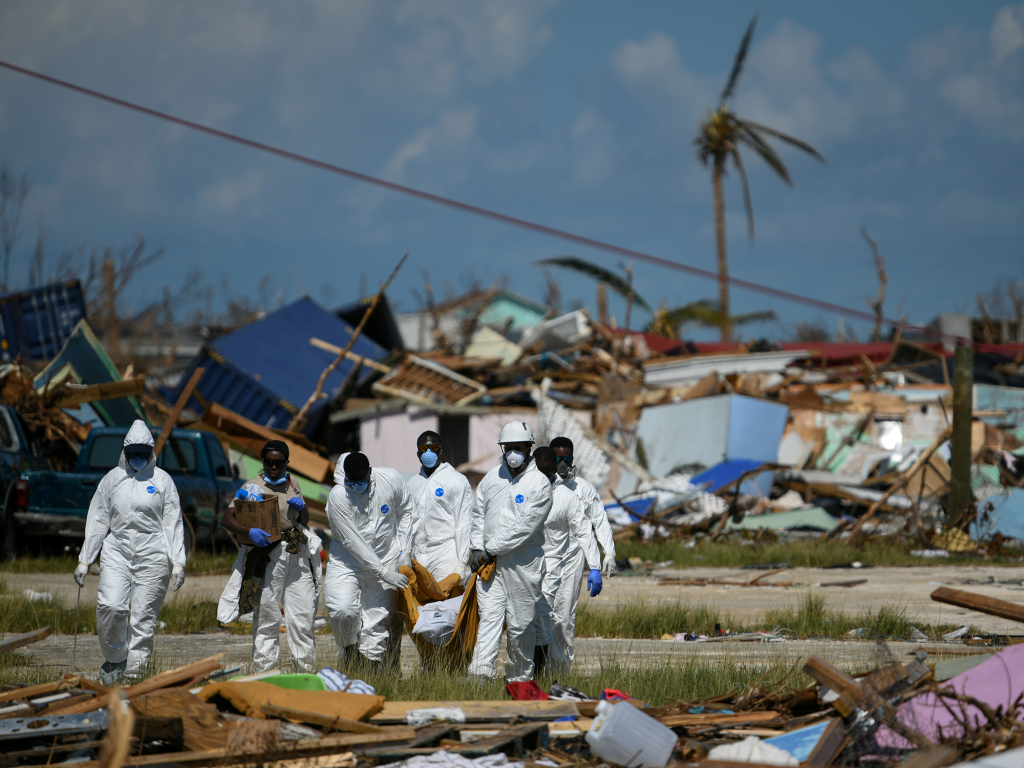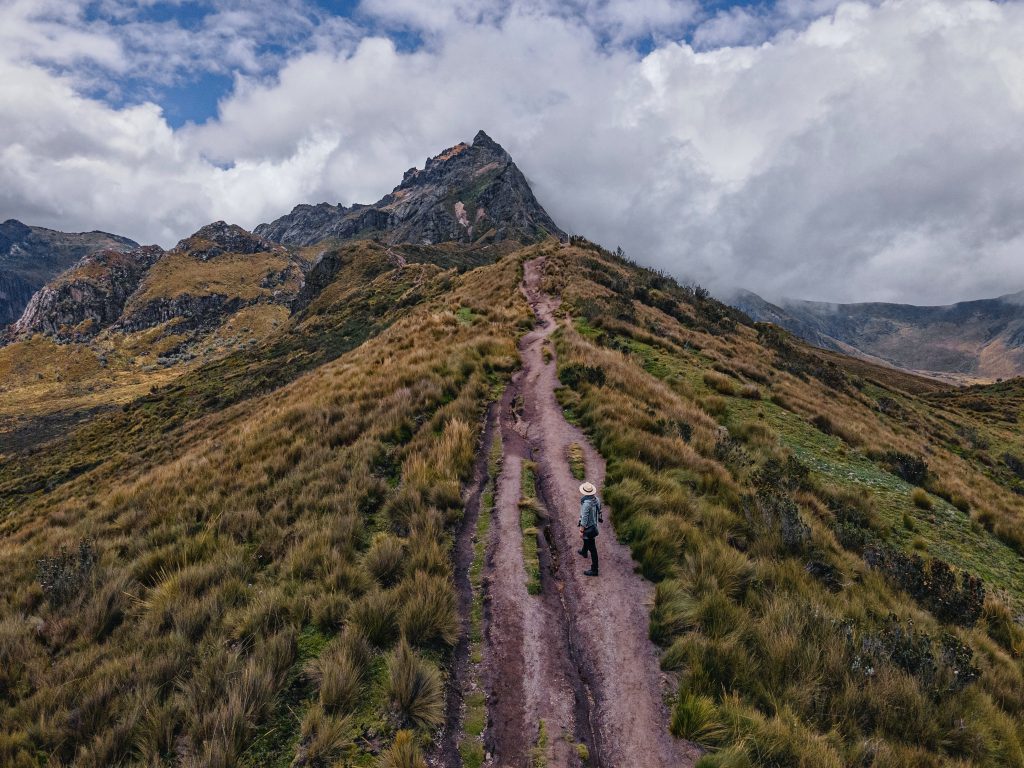PACC 2030 objectives: The road to implementation
The fifth of a six-part series following up on the Ninth Summit of the Americas commitments.
This is a report from the Atlantic Council’s Adrienne Arsht Latin America Center in partnership with the US Department of State. This readout was informed by multi-stakeholder dialogues focused on facilitating greater, constructive exchange among multi-sectoral thought leaders and government leaders as they work to implement commitments made at the Ninth Summit of the Americas.
Executive summary
On March 14, the Atlantic Council’s Caribbean Initiative partnered with the US Department of State to organize the PACC 2030 Road to Implementation Summit on the sidelines of the Energy and Climate Partnership of the Americas Ministerial Meetings in the Dominican Republic. The summit built on the PACC 2030 Climate Resilient Clean Energy Summit, which took place on the sidelines of US Vice President Kamala Harris’s inaugural trip to the Caribbean in June 2023, and previous partnerships with the Department of State to advance commitments adopted at the Ninth Summit of the Americas in Los Angeles in 2022. Since then, the Atlantic Council has organized a PACC 2030 Working Group and has worked closely with governments, the business community, and civil society organizations to support the implementation of PACC 2030’s objectives.
5 recommendations for implementing PACC 2030’s commitments:
- Enhance partner coordination to streamline access to resources and technical assistance
- Improve coordination among partners to create a standardized project application and approval process that alleviates administrative burdens on small governments with limited technical capacity. This can include creating templates and guidelines for project proposals, permitting procedures, and regulatory compliance.
- Create regular networking forums and knowledge-sharing platforms where stakeholders from various sectors can exchange ideas and explore potential collaborations through workshops, conferences, and online platforms that promote dialogue and partnership building.
- Support capacity building to strengthen the regulatory environment to help scale up projects and welcome new investors
- Enhance access to technical expertise and resources through partnerships with US national laboratories, academic institutions, and industry experts to create knowledge transfer programs or country mentorship initiatives to build local capacity and expertise in key areas, including renewable energy integration, grid stability, and project management.
- Develop programs tailored to government officials, project developers, and community leaders to improve their understanding of financing options, investment structures, and risk management strategies.
- Build innovative financing mechanisms to mobilize new capital at affordable rates
- Introduce risk mitigation instruments such as insurance protections and guarantees to address uncertainty and attract further private sector investment. These instruments would protect investors against market fluctuations, policy changes, and natural disasters, thus increasing confidence in climate resilience projects.
- Align partnerships with multilateral institutions like the World Bank and Inter-American Development Bank (IDB)—for example, through the latter’s new “One Caribbean” program—to build a project pipeline to attract capital to the region and facilitate technical assistance to de-risk clean energy projects.
- Continue and expand engagement with new actors and partners
- Encourage greater private sector involvement in financing, implementing, and scaling up climate resilience and clean energy projects through public-private partnerships.
- Prioritize community engagement and empowerment strategies to ensure climate resilience and clean energy projects are inclusive, participatory, and responsive to local needs and priorities, particularly as the agenda takes shape for the next Summit of the Americas.
- Expand connections between subnational and small-state leaders across the Summit of the Americas process, including before a second Cities Summit of the Americas.
- Continue progress at the Tenth Summit of the Americas
- Utilize the Tenth Summit of the Americas’ CEO Summit—to be organized by the IDB—to engage business leaders to work with stakeholders in the Caribbean to ensure that the summit responds to the needs of the region and the wider Americas.
- Reinforce regional cooperation on clean energy and climate-related challenges by building on commitments like “Our Sustainable Green Future” and “Accelerating the Clean Energy Transition” adopted at the Ninth Summit of the Americas in the next iteration.
- Engage with the Joint Summit Working Group’s organizations and the Americas Business Dialogue to streamline financing and technical assistance to support implementation of the commitments made at the Ninth Summit of the Americas.
Related content
Public events
Related experts
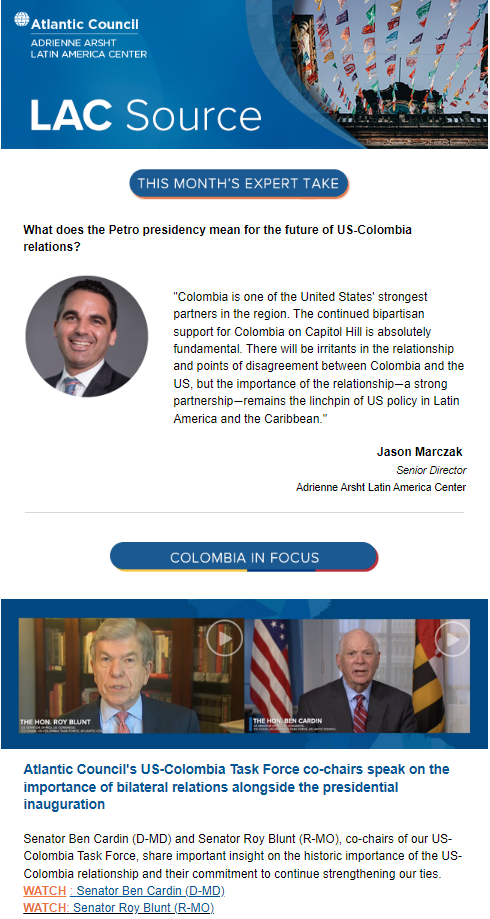
Subscribe to LAC Source Newsletter
Get monthly updates on Latin America and the Caribbean (LAC) to receive the latest developments of the region, upcoming public events and recaps, new reports, and more.

The Adrienne Arsht Latin America Center broadens understanding of regional transformations and delivers constructive, results-oriented solutions to inform how the public and private sectors can advance hemispheric prosperity.
Image: Photo by Zbynek Burival on Unsplash

